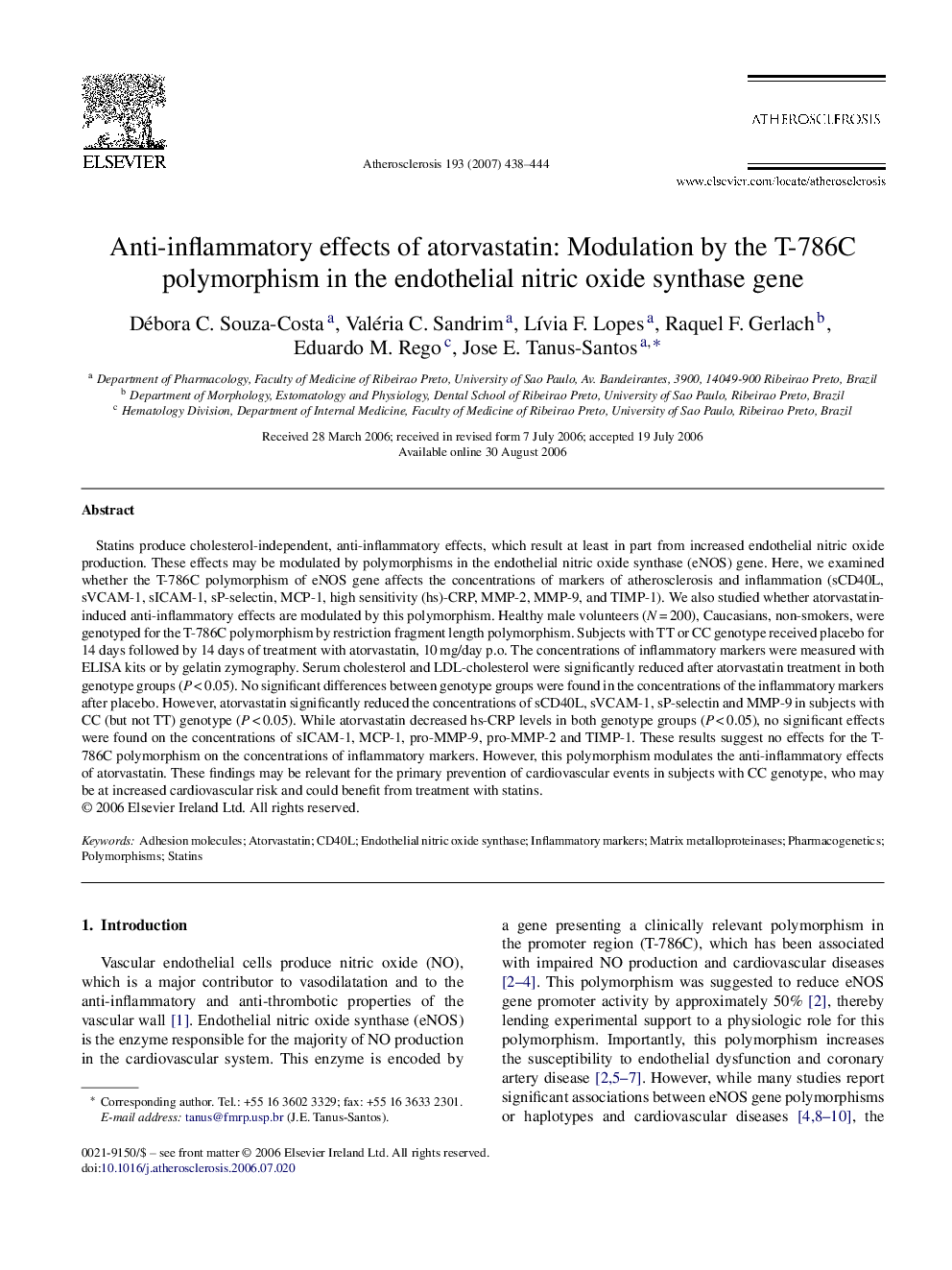| کد مقاله | کد نشریه | سال انتشار | مقاله انگلیسی | نسخه تمام متن |
|---|---|---|---|---|
| 2894369 | 1172433 | 2007 | 7 صفحه PDF | دانلود رایگان |

Statins produce cholesterol-independent, anti-inflammatory effects, which result at least in part from increased endothelial nitric oxide production. These effects may be modulated by polymorphisms in the endothelial nitric oxide synthase (eNOS) gene. Here, we examined whether the T-786C polymorphism of eNOS gene affects the concentrations of markers of atherosclerosis and inflammation (sCD40L, sVCAM-1, sICAM-1, sP-selectin, MCP-1, high sensitivity (hs)-CRP, MMP-2, MMP-9, and TIMP-1). We also studied whether atorvastatin-induced anti-inflammatory effects are modulated by this polymorphism. Healthy male volunteers (N = 200), Caucasians, non-smokers, were genotyped for the T-786C polymorphism by restriction fragment length polymorphism. Subjects with TT or CC genotype received placebo for 14 days followed by 14 days of treatment with atorvastatin, 10 mg/day p.o. The concentrations of inflammatory markers were measured with ELISA kits or by gelatin zymography. Serum cholesterol and LDL-cholesterol were significantly reduced after atorvastatin treatment in both genotype groups (P < 0.05). No significant differences between genotype groups were found in the concentrations of the inflammatory markers after placebo. However, atorvastatin significantly reduced the concentrations of sCD40L, sVCAM-1, sP-selectin and MMP-9 in subjects with CC (but not TT) genotype (P < 0.05). While atorvastatin decreased hs-CRP levels in both genotype groups (P < 0.05), no significant effects were found on the concentrations of sICAM-1, MCP-1, pro-MMP-9, pro-MMP-2 and TIMP-1. These results suggest no effects for the T-786C polymorphism on the concentrations of inflammatory markers. However, this polymorphism modulates the anti-inflammatory effects of atorvastatin. These findings may be relevant for the primary prevention of cardiovascular events in subjects with CC genotype, who may be at increased cardiovascular risk and could benefit from treatment with statins.
Journal: Atherosclerosis - Volume 193, Issue 2, August 2007, Pages 438–444